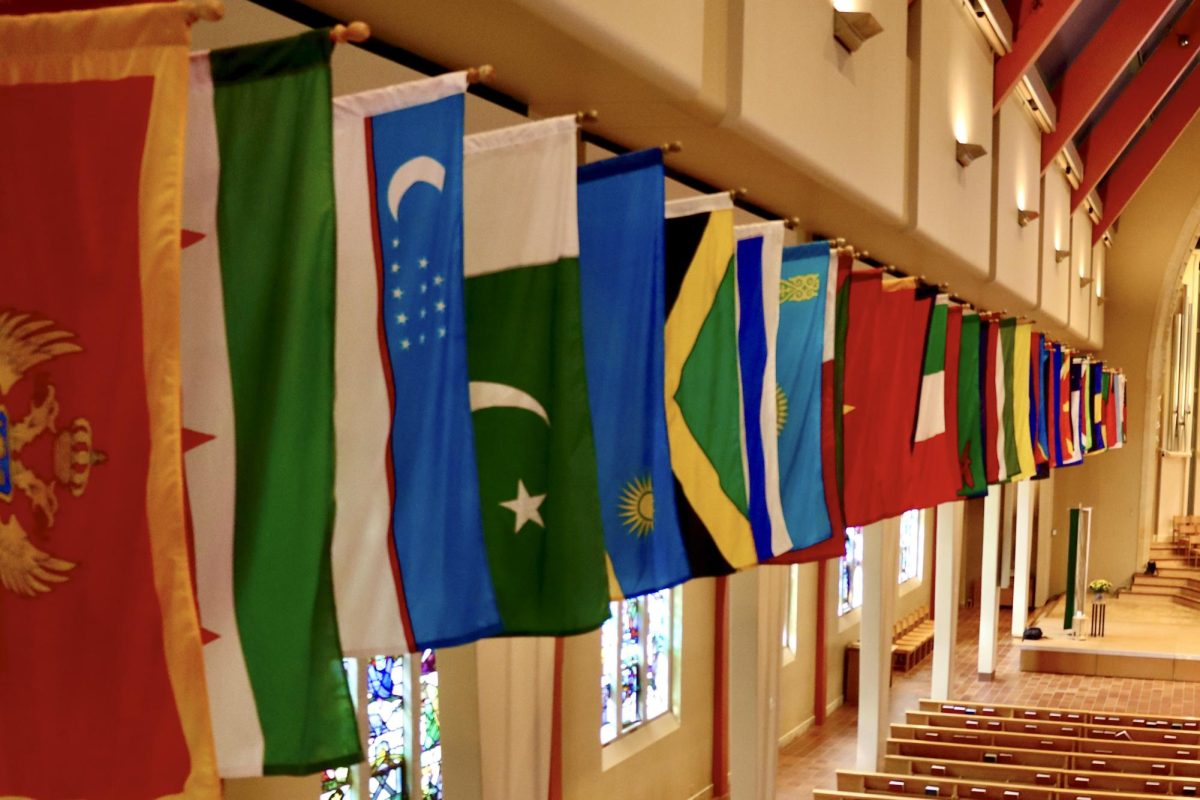Students that have navigated the study abroad application process before should note that there are a couple significant changes this year.
The first is the new international studies website, www.stolaf.edu/international. Students can now browse program options by region or name, view program costs and submit their declaration of intent to study abroad online. It is now even possible to request an academic advisor’s signature online.
“The new website will cut down on the number of paper brochures. Everything is online these days,” said Eric Lund, professor of religion and director of International and Off-Campus Studies.
The second change that International and Off-Campus Studies is implementing is attempting to balance the number of students studying off campus each semester.
“This will allow the college to balance [its] finances and the number of empty beds, making it easier to predict the number of students it can admit, which will be better for the school,” Lund said. “We normally have many more students studying abroad in the fall than in the spring. On the declaration of intent, we are asking the students to list at least one second-semester option.” In an effort to make that balance, Lund asks that students think carefully about studying abroad in the spring. If they cannot, the declaration of intent asks that a sufficient reason be provided.
The importance of studying in another country or merely off campus cannot be overemphasized.
“Graduate schools and the job market are looking for high-impact experiences, that is, experiences where students apply the knowledge they’ve learned in the classroom to real-life scenarios,” Lund said. “It is simply crucial that people in every occupation – every frame of mind – have familiarity and knowledge of the world.”
“Job competition is important, but it’s not the only thing,” said Helen Stellmaker, coordinator of program advising and student activities in the International and Off-Campus Study Office. “I hear so many stories about how studying abroad has changed students’ views of the world. I have only heard of one bad experience in 25 years, but have had many more students who didn’t go who had wished they had studied in a foreign country.”
St. Olaf has one of the highest off-campus study rates in the country, with between 70 and 75 percent of students from each class having studied away from the Hill. Every year, approximately 800 students leave campus for academic programs in East Asia, Africa, North and South America, Europe and a slew of other locations.
Students are provided with an abundance of options in terms of academic preferences. They can choose to study in English or in a foreign language; they may study abroad for a year, for a semester or during interim; they may fulfill major requirements, GEs or no particular requirements at all.
When it comes to studying abroad, Stellmaker believes students need to decide what kind of program is the best fit individually.
“Students can either go into a program where they take courses with St. Olaf students or they can direct enroll into a foreign university where they may never see another Ole. It all depends on their preferences,” she said. “I have students say ‘I love to camp. I love to do this.’ Find some way to fit that into your program and pursue something that you love to do.”
To prevent any disappointment down the road, students should ensure that they are eligible to study on their desired program. Student eligibility requirements vary by program but can include class prerequisites, GPA requirements or even limitations on which class years may attend the trip. While all semester programs are closed to first years, there are a couple of off-campus interim courses in which first years may participate.
There are limited enrollment slots for each program, so students who filed their declaration of intent by the deadline of Nov. 1, 2012 will be given preferential consideration.
Students should also consider their credit needs when choosing where and for how long to study. They need to ensure that studying abroad will not jeopardize their progress toward graduation.
“While your trip doesn’t have to fit with your major, the more class flexibility you have, the more program options you will have,” Stellmaker said.
St. Olaf boasts an amazing array of study abroad opportunities, and the changes in the International Studies Office will help students navigate all these options more effectively.





